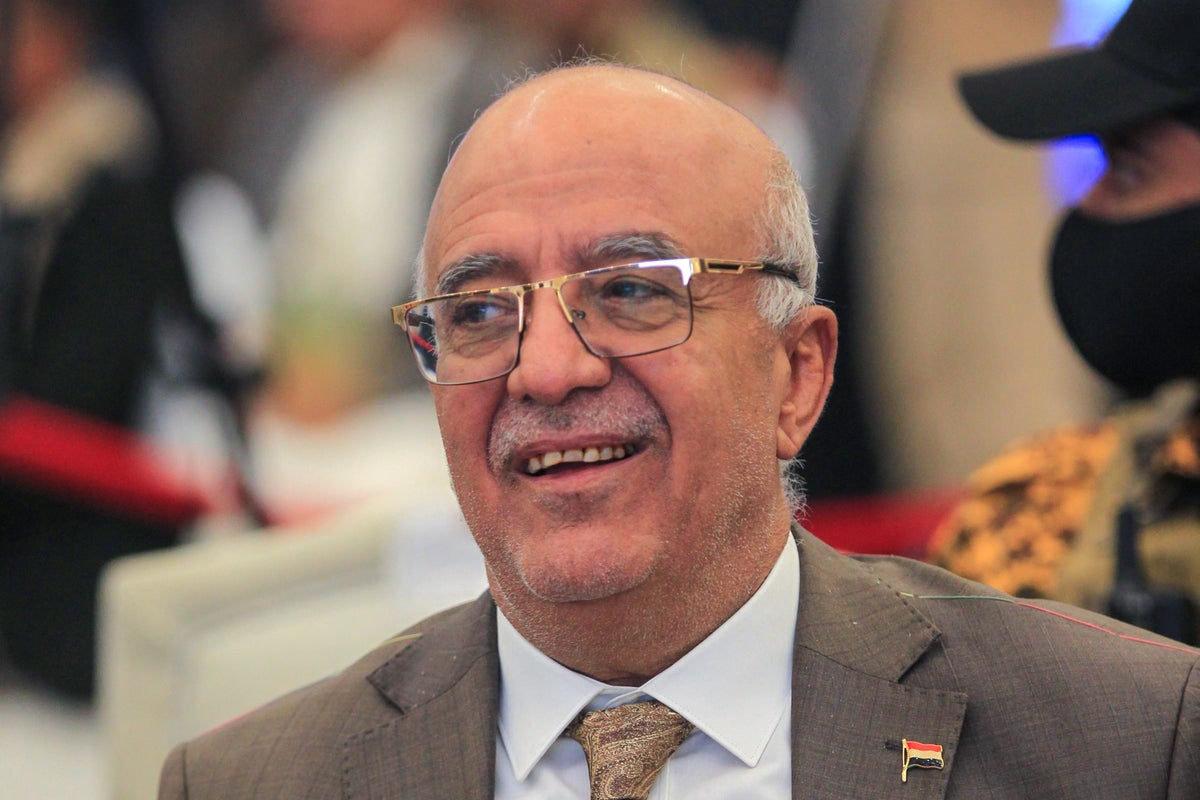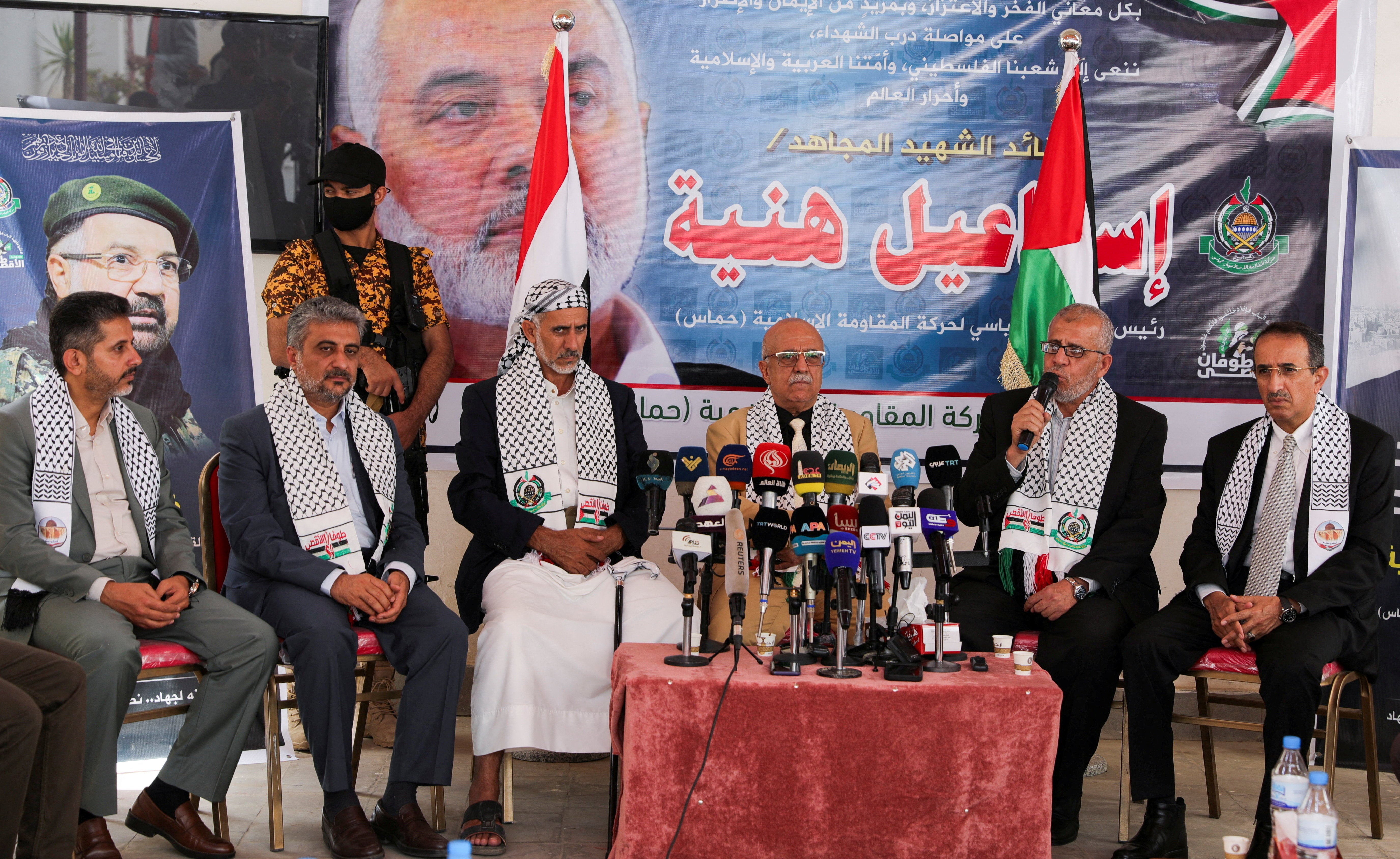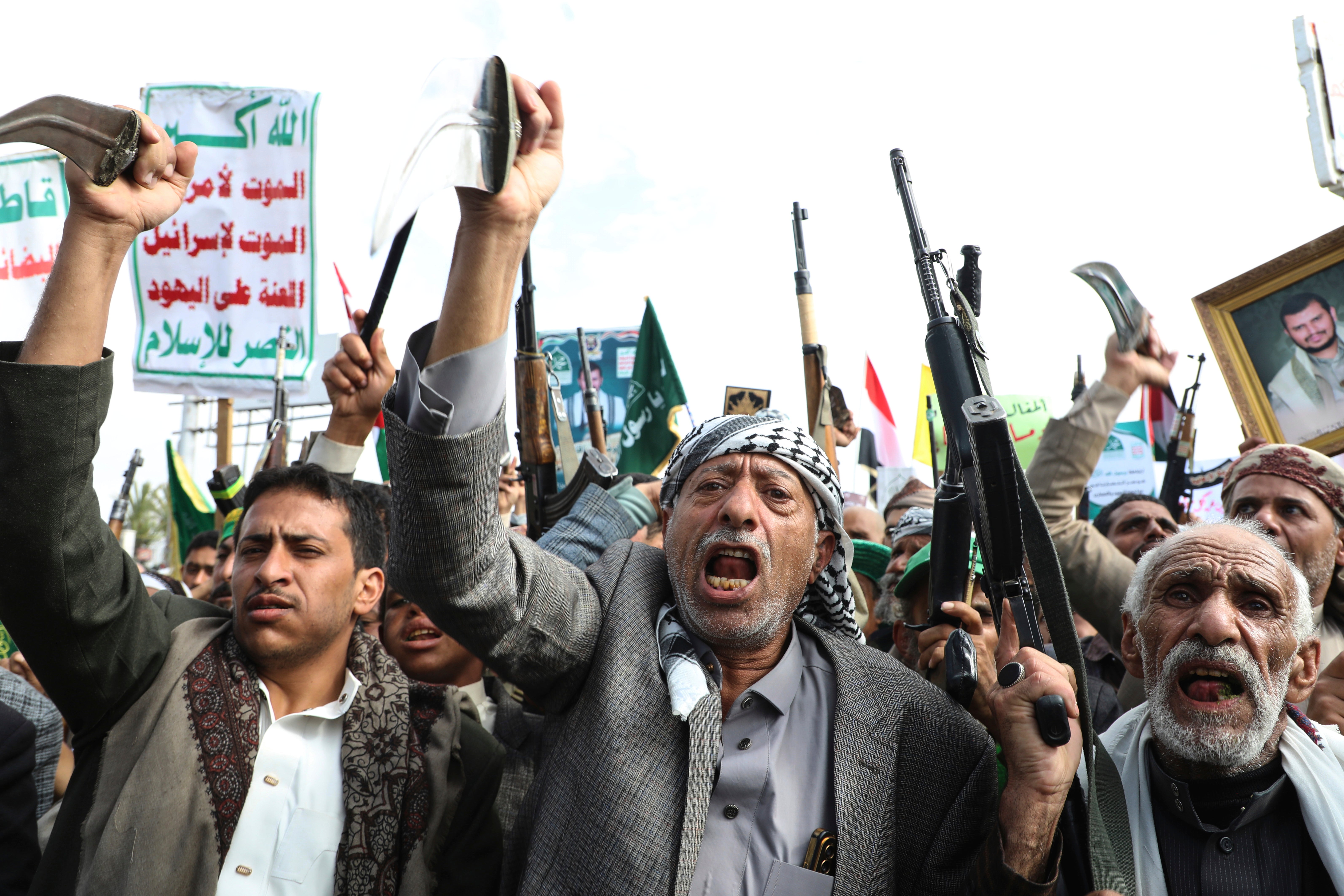
The prime minister of Yemen’s Houthi government, Ahmad Ghaleb al-Rahawi, has been killed in an Israeli strike, according to a news agency run by the group.
Several other ministers were killed in the strike, according to the Houthi-run agency, though they were not named.
Israel said on Friday that the airstrike had targeted the Iran-aligned group’s chief of staff, defence minister and other senior officials and that it was verifying the outcome.
A statement was released from defence minister Mohamed al-Atifi, shortly after the prime minister's death was confirmed, which quoted him as saying the group was ready to confront Israel.
Saudi Arabian news site Al-Hadath has reported that the Houthis’ foreign minister, as well as the ministers for justice, youth and sports, social affairs and labour, were killed.

The office of Mahdi Al-Mashat, the Houthi president, said that several other ministers “sustained moderate and serious injuries” as a result of the strike, according to the BBC.
An IDF spokesperson told The Independent that the strike “was made possible by seizing an intelligence opportunity and completing a rapid operational cycle, which took place within a few hours”.
They confirmed that the Houthi prime minister was killed in the strike, alongside other senior officials who they said were “responsible for the use of force, the military building of the Houthi terror regime, and the advancement of terror actions against Israel”.
Rahawi became prime minister nearly a year ago but the de facto leader of the government was his deputy, Mohamed Moftah, who was assigned on Saturday to carry out the prime minister's duties. He was seen largely as a figurehead who was not part of the inner circle of the Houthi leadership.
Formerly an ally to ex-Yemeni president Ali Abdullah Saleh, Rahawi allied himself with the Houthis when the rebels overran Sana’a, and much of the north and centre of the country in 2014, initiating the country’s long-running civil war.
The Israeli military said its fighter jets had struck a compound in the Sana’a area where senior Houthi figures had gathered, describing the attack as a “complex operation” made possible by intelligence-gathering and air superiority.

On Thursday, Israeli security sources had said the targets had been various locations where a large number of senior Houthi officials had gathered to watch a televised speech recorded by leader Abdul Malik al-Houthi.
Since Israel began its war in Gaza in October 2023, the Houthis – who are aligned with Iran – have attacked vessels in the Red Sea in acts they have described as solidarity with the Palestinians.
They have also frequently fired missiles towards Israel, most of which have been intercepted. Israel has responded with strikes on Houthi-controlled areas of Yemen, including the vital Hodeidah port.
The US and Israeli strikes have killed dozens of people in Yemen. One US strike in April hit a prison holding African migrants in northern Sadaa province, killing at least 68 people and wounding 47 others.
During the last year, Israel carried out a series of assassinations of the top leaders and commanders of Hamas and its Lebanese ally Hezbollah that significantly weakened the two groups.
“We remain steadfast in our genuine position of supporting and standing with the people of Gaza, and in building and developing the capabilities of our armed forces to confront all challenges and dangers,” Mahdi al-Mashat’s statement said.
Israeli airstrikes hit Yemeni capital, Houthis say
UN food agency chief says women and children are 'starving' in Gaza and pressed Netanyahu on aid
What to know after the US deports more migrants to Africa
Rwanda says 7 deportees arrived from the US in August under agreement with Washington
Tony Blair, Donald Trump and a special relationship that should surprise no one
Israel says bodies of two hostages returned as military begins Gaza City offensive







